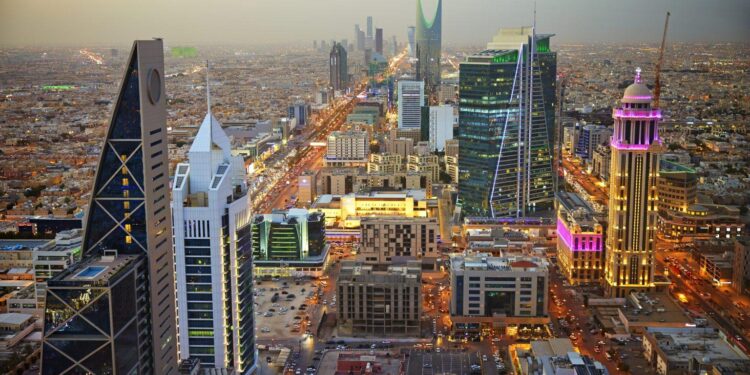Saudi Arabia’s Role in Shaping the Future of Global Emissions Policies
How Saudi Arabia Influences the Pace of Global Emissions Regulations
In the ongoing global effort to combat climate change, Saudi Arabia has emerged as a pivotal player advocating for a more cautious approach to tightening emissions standards. As one of the world’s leading oil exporters, the Kingdom is deeply invested in preserving its fossil fuel-driven economy. This economic reliance shapes its diplomatic strategy, which emphasizes gradual energy transitions rather than abrupt policy shifts that could destabilize emerging markets and economies dependent on hydrocarbons.
Saudi officials have consistently voiced concerns at international climate summits about potential economic disruptions caused by rapid decarbonization. Their approach includes promoting continued investment in oil and gas while simultaneously calling for balanced energy policies that consider both environmental goals and economic realities.
The Kingdom also strengthens its position through strategic partnerships with other major oil-producing nations, forming coalitions aimed at moderating aggressive emissions targets. Key components of this multifaceted strategy include:
- Climate Finance Advocacy: Pushing for increased funding directed toward developing countries reliant on fossil fuels to support their economic growth alongside environmental commitments.
- Investment in Carbon Management Technologies: Championing innovations such as carbon capture, utilization, and storage (CCUS) as viable solutions that enable continued use of hydrocarbons with reduced environmental impact.
- Global Messaging Campaigns: Crafting narratives that highlight fossil fuels’ critical role in ensuring energy security and supporting global development objectives.
This stance has drawn criticism from environmental groups who warn it may delay urgent climate action needed to prevent catastrophic warming. Analysts interpret Saudi Arabia’s tactics as emblematic of a broader conflict between safeguarding immediate economic interests and addressing long-term planetary sustainability challenges.
The Economic Versus Environmental Consequences of Postponing Emission Controls
The Kingdom’s efforts to slow down international progress on emissions reductions raise complex questions about balancing short-term financial gains against long-term ecological risks. By resisting stringent regulations, Saudi Arabia aims to protect vital oil revenues but risks falling behind as global markets increasingly favor renewable energy investments and carbon-neutral technologies.
This resistance could expose the nation to heightened market volatility amid accelerating shifts toward clean energy worldwide. According to recent data from the International Energy Agency (IEA), renewable sources accounted for nearly 30% of global electricity generation in 2023—a figure expected to rise sharply over the next decade—signaling an inevitable transition away from fossil fuels despite current dependencies.
The environmental stakes are equally significant: delaying emission cuts exacerbates climate-related hazards such as extreme weather events, ecosystem degradation, and biodiversity loss—all factors contributing substantial costs globally. The World Bank estimates that unchecked climate change could push over 100 million people into poverty by 2030 due partly to these impacts.
- Rising Adaptation Expenses: Greater reliance on hydrocarbons may increase future spending required for infrastructure resilience against floods, droughts, or heatwaves.
- Diversion of Capital Flows: Investors are progressively channeling funds into sustainable ventures; countries lagging behind risk capital flight or diminished foreign direct investment (FDI).
- Deteriorating Public Health Outcomes: Elevated greenhouse gas emissions correlate strongly with air pollution-related illnesses like asthma or cardiovascular diseases—burdensome costs on healthcare systems worldwide.
| Aspect | Economic Effect | Environmental Effect |
|---|---|---|
| Earnings Growth (Short-Term) | Significant | Minimal |
| Sustainability & Market Stability (Long-Term) | Moderate Risk | Severe Impact |
| Cumulative Health Expenditures Due To Pollution | Moderate Burden | High Burden |
Navigating Climate Diplomacy Amid Geopolitical Complexities: Pathways Forward
The intersection between geopolitical dynamics and climate negotiations demands innovative approaches fostering cooperation without compromising national interests. Transparent dialogue remains essential; open communication channels can reduce mistrust among parties often divided by competing priorities or regional rivalries.< / p >
International frameworks should emphasize shared benefits such as technology sharing agreements enabling developing nations access clean-energy solutions without sacrificing growth prospects.< / p >
- < strong >Independent Monitoring Systems:< / strong > Establish impartial bodies tasked with verifying compliance objectively across all signatories.< / li >
- < strong >Adaptive Timelines:< / strong > Design flexible emission reduction schedules tailored according to each country’s developmental stage.< / li >
- < strong >Diplomatic Engagement:< / strong > Utilize multilateral diplomacy proactively resolving disputes related directly or indirectly with emission commitments.< / li >
< / ul >
By prioritizing collaboration over competition within these mechanisms—and recognizing diverse national circumstances—the international community can accelerate meaningful progress despite underlying tensions.< / p >
< / section >A Critical Juncture: The Future Impact Of Saudi Arabia’s Climate Positioning< / h2 >
The Kingdom’s current posture exemplifies one of today’s most pressing dilemmas: reconciling entrenched fossil fuel dependence with mounting calls for urgent decarbonization worldwide. As negotiations unfold ahead of upcoming COP summits scheduled through mid-2024,(source), outcomes will significantly influence not only regional economies but also shape collective strategies combating global warming trends projected by IPCC reports through this decade ((source)). The balance struck between protecting immediate revenue streams versus investing decisively into sustainable futures will determine how effectively humanity curtails irreversible climatic damage while securing prosperity across generations yet unborn.
Ultimately,the decisions made now resonate far beyond diplomatic chambers — impacting ecosystems,biodiversity,and human livelihoods around our planet.
Understanding these complexities is crucial if we hope not only survive but thrive amid accelerating planetary changes.















